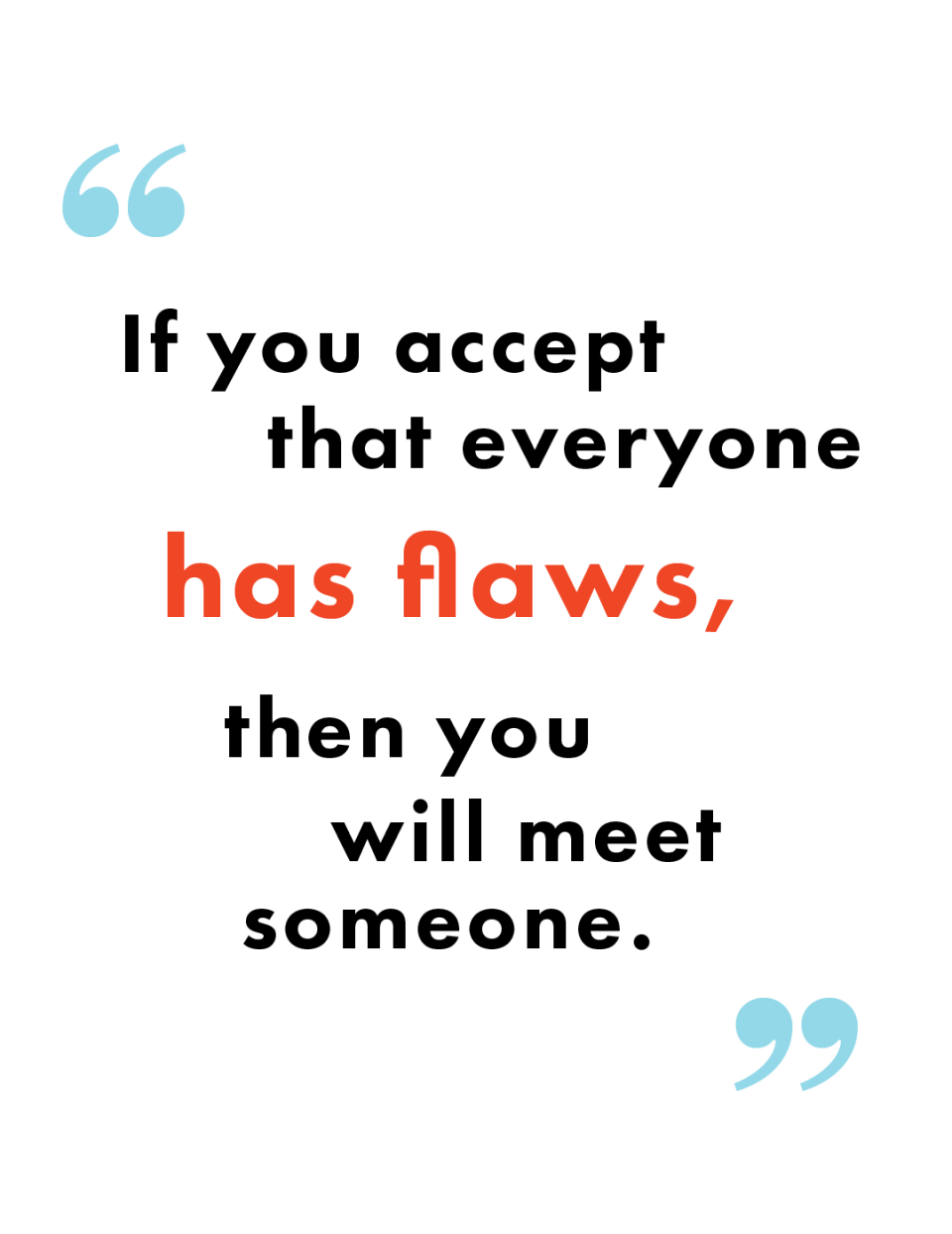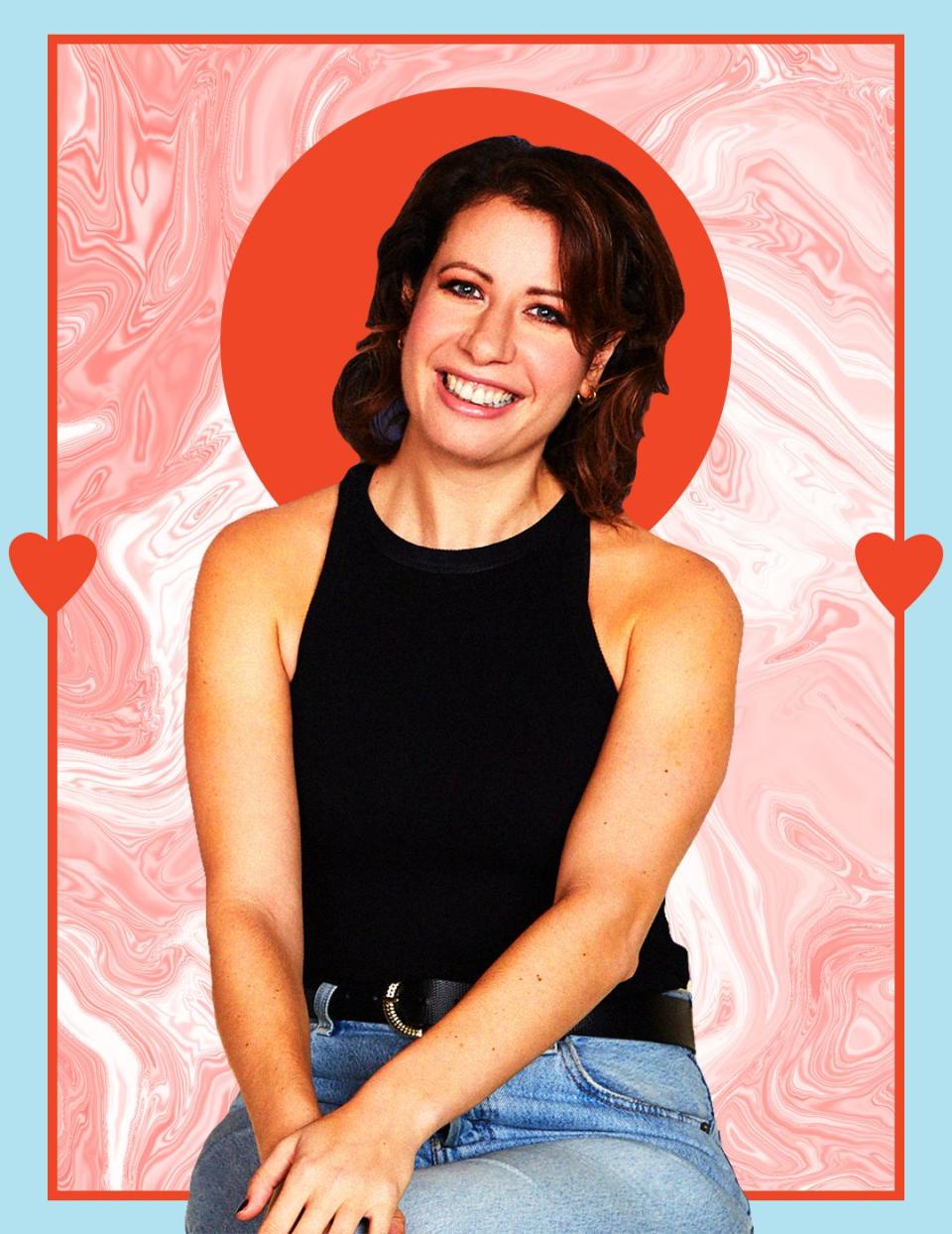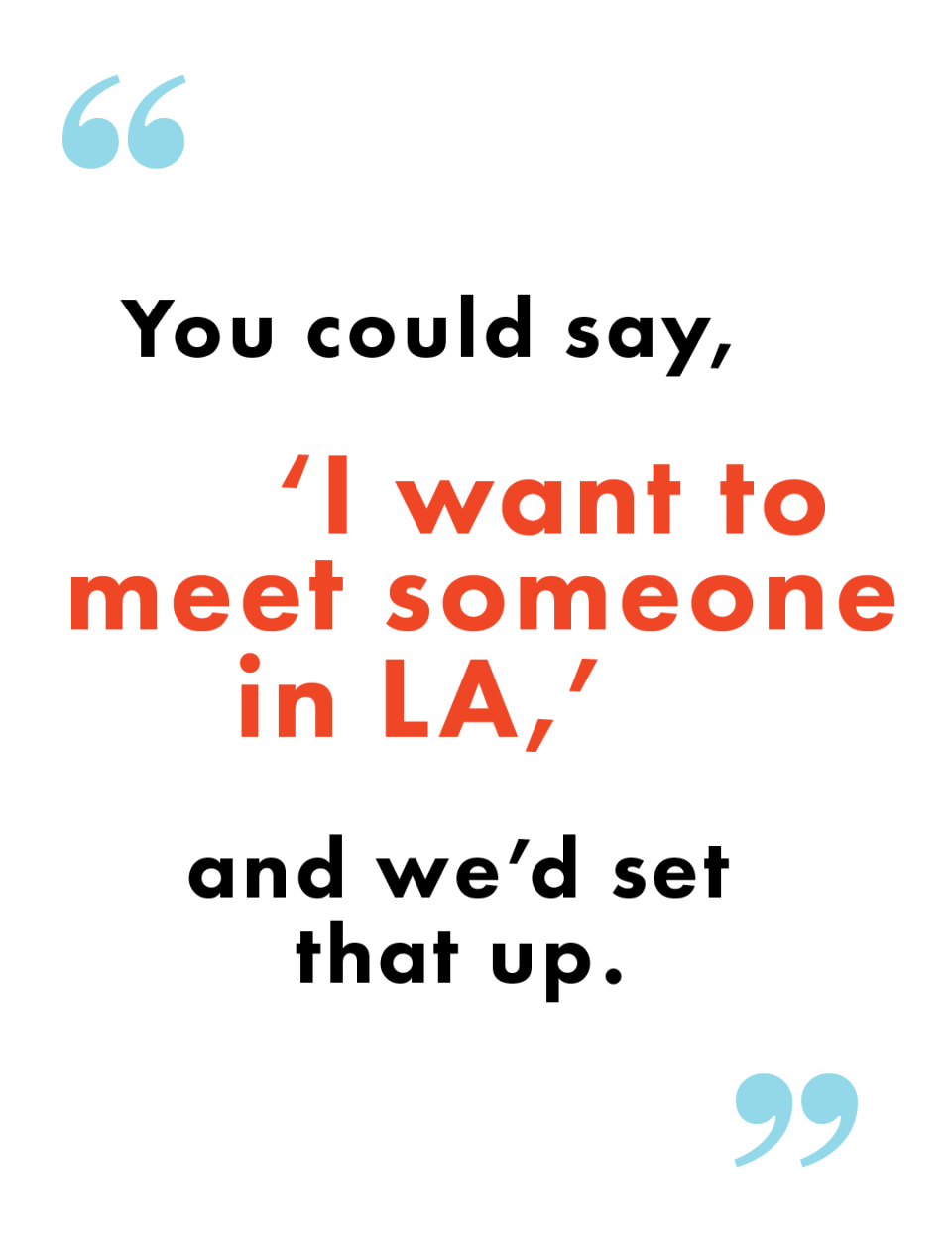Would you spend £15k on love?
The walls are blood red, with mismatched frames housing black and white pictures of various men I don’t recognise. The floorboards are so trodden they’re shiny, and the rugs - along with the waitresses’ skirts - are tartan. From next door comes the boom of male laughter and, they come through in groups, clad in novelty jumpers, to make their way up the stairs to the cigar terrace. One of whom – I’m told is a right-wing politician, I didn’t look up in time. Another, a Hollywood actor who I’m much more upset not to spot.
On our table sits a bottle of champagne, and – every now and then – these men make their way over to us, where Mairead Molloy – the global director of Berkeley International, the international elite matchmaking agency – pours them a glass and hears about their lives.
It seems I’ve finally found the answer to the question – “where are all the men hiding?” The whole place is soaked in testosterone. Whether they’re ‘good’ men depends on your personal preferences (and politics) but considering Molloy has spent the last sixteen years setting up high-net individuals with each other, you can pretty much guarantee she’ll have the perfect match in mind for each and every one of them.
When I moved to London, over a decade ago, I tried to become a professional matchmaker. I printed out my CV, wrote long covering letters detailing my ‘experience’ and sent them off to various agencies. But, it turns out, setting up one couple (who split after three years) and chatting up people in clubs on behalf of my friends, were not the qualifications they were looking for. I did not get invited in for an interview.
Even back then the idea of paying someone to find you a prospective suitor seemed old fashioned, and straight of Pride and Prejudice. Why part with your cash when you could meet someone in a bar, get your mate to set you up or flirt with that hot person you see in work’s communal kitchen area? Then Tinder came along, in 2012, and made those IRL connections seem dated. Why settle for whoever is in your current vicinity/friendship group when, sitting in your pocket, were millions of singles just waiting to speak to you?
Two years after its launch Tinder was boasting more than a billion swipes per day. Then even more apps came along; with the launch of Bumble and Happn in 2014, and suddenly there was an app for every preference – into beards? There’s an app for that. Fancy a threesome? There’s an app for that as well. Our preferences for staying in and swiping was, according to some experts, behind the fledgling nightclub scene, which has dipped in value by an estimated £200 million in the past five years (Netflix, an unstable economy and the wellness scene have also undoubtedly played their part.)
But, lately, the tide appears to be turning. Cosmopolitan research found that 70% of our readers would prefer to meet someone in real life, dating meet-ups have increased by 400% since 2014 and for those, like Molloy, business is thriving. But what can we learn from a woman who charges upwards of £15,000 for her services? Does she really know the secret to finding love in a world reliant on algorithms to make a connection? I decided to achieve that old ambition of mine, and become a professional matchmaker to find out.
“It’s all coming back now, tailor-made, bespoke, hand-holding dating,” says Mairead, smearing butter on toast, talking to me and peering at her email inbox all at the same time. We’re at Home House, a private members club in London which is all gold-edged mirrors and swooping to the floor curtains. Despite having nine offices globally (and living in Cannes herself) Irish Molloy works, it seems, wherever there will be eligible singles. She blanches at the idea of being called a ‘matchmaker’; she’d prefer relationship psychologist (also works in the field and has a degree in psychology and a master's in criminal law.)
She certainly has a way of eking out personal details – when I listen, on my Dictaphone, to our conversation a few days later I realise it took her just ten minutes for me to let her in on some extremely personal details about my own life.

This is a huge part of her job. I’d imagined I’d spend the day rifling through profiles of people on a computer, pairing them together. But that’s not how it works. Molloy gets to know people quickly, her client-base is made up of applications from the website, referrals and those who she actively seeks. Berkeley International tailor a package for each client, depending on their specific needs – for those willing to spend the big bucks Molloy or one of her 20 global ‘ambassadors’ will fly all across the world looking for that specific person.
“So, I could ask you to find me Jack O’Connell and you could?” I ask, wondering if, for this feature (and my career) my husband might let me go on a date with him. “You have to be realistic,” Molloy says, dashing my hopes… but maybe saving my marriage. “We may not have that sort of person, or they may not be interested in you. But you could say ‘I want to meet someone in LA in the film industry’ and we could set that up for you.”
Once in LA, or New York (or wherever you need her) Molloy will get herself into the right parties and ‘network.’ “We once had a client who really wanted to meet a doctor from Harvard,” she tells me. “We flew out there and, for weeks, went to all the socials and set her up with sixteen or so people. Naturally I can say to someone ‘are you in a relationship?’ and find out, and hand them a card.”

Before taking anyone on as a client, there's a brief phone consultation in which it's decided if they’re ‘suitable’ (more on that later) and then it's a full on interview. This takes place in their homes, or in the Berkeley International Offices where we head next to interview Amy Grier, Cosmopolitan’s Executive Editor (and, not-as-awkward-as-it-sounds my boss). We're putting her through Berkeley's books so I can see how it works. I’m jealous – Molloy is super secretive as to who she looks after but it’s a mixture of lawyers, self-made business owners, celebrities… one client even hosts his dates on his private jet.
Over glasses of fizzy water Molloy fires questions at Amy, in a process that’s more like a very intense job interview. Every now and then she shuts her eyes, as if mentally scrolling through folders in her head. “You’re always thinking of your clients,” she confirms later. “The minute someone walks in the room I have an idea in my mind as to who to set them up with.” Whoever it is Amy will not see a picture of them. “I have no tolerance for online dating and how dismissive people can be, it’s disrespectful. You have to give people a chance.”
Our next appointment is at a plastic surgeon’s office in a wealthy borough of London. It’s here we meet Dr Ghoobi*, to see how he's getting on with his current match. He met his first wife through Molloy and then, ten years later, messy divorce behind him, he's turned to her again. He beams at us and says he’s weeks away from proposing with a rare, blue diamond ring. Just as he’s divulging his plans we are ambushed by a surprise visitor: a friend and client of his, who’s recently divorced and wants to find love.
Molloy begins to fire questions at her, but she soon mentions her ex, his name uttered as if it's wrapped in gold. Molloy plainly comments, “you’re still in love with him.” There's some back and forth as the prospective client insists she isn’t. But Molloy is unconvinced. This could be good or bad, she says after we leave - perhaps starting something else will be what she needs to get over him… or it will help break her out of denial. She’ll still take her on as a client and see – after a few dates – what happens. Then it might be time for a tough conversation.
Because that’s another huge part of Molloy’s job – telling people where they’re going wrong. After every date both parties give feedback, and that’s used to inform the next – both in terms of who they’re matched with, and how they behave on dates. “Some people really appreciate being told what’s wrong with them,” she says. “It’s quantitative analysis – eventually after five, six, seven dates you see the same themes coming up.” If these things are damaging, then it’s time to have a word. Similar bugbears come up again and again, across the board. People drinking too much on dates, inflated egos and – something undoubtedly enhanced in both online dating and in an elite service like this: pickiness.
“You can’t breed the perfect human. Some people will want a precise height, 6ft 3in instead of 6ft 4in. And often my clients will think the more money they spend, the more they can increase their wish list… but even if we can present you your ideal person on paper, we can’t provide chemistry. It’s the one thing money can’t buy.”

As for cash, I’m intrigued to know whether demand a certain salary from their match. “I don’t think salaries come into play too much for the men, maybe 3% will ask about it. For them, it’s about the laughter, the love, the look and feeling of belonging. But for women – and this may be controversial…” she says, pausing. “I think they like to feel secure. Not necessarily financially, women should be financially dependant but they do like to feel protected and looked after, and money comes into that.”
The way Molloy talks about love is practical and mature – she won’t promise the world, and will put you in your place if you demand it. Love, she says, isn’t about finding ‘The One’ but instead someone who “feels like home.” Despite relaying some very romantic stories she doesn’t believe in fate. Even though she once – without knowing their relationship to each other – matched a divorced couple together… and they re-married. Or the time she set up a client with a woman he’d spotted on the street – months before – and fell in love with.
“If your wishlist isn’t too long, you’re a relatively normal human being and accept that everyone has flaws then you will meet someone,” she says. But Molloy wouldn’t dream of attending any of her client’s weddings. “You don’t invite your plumber to enjoy your bath, do you?” she says, cackling.

I didn’t fully understand what Molloy meant by ‘networking’ until, later, we head to Boisdales of Belgravia London, the Scottish restaurant filled to the brim with men, with booming voices and - looking at the menu – bursting wallets. It’s one of Molloy’s favourite ‘networking’ places, and where many of her clients hold their first dates. I’ve never been anywhere like it, the tartan everywhere reminds me of the dive bars I’d drink in underage in Scotland but the clientele are entirely different. Instead of pallid stoners who need (at least) five black sambucas before they’ll come over and chat to you, here making conversation with strangers is the norm.
Within thirty minutes of arrival we’ve already spoken to a record producer weighed down by gold chains (and bronzer) and a white-haired movie producer. Both leave with Molloy’s card clutched in their grip. I keep my eye out for matches for Amy but can’t spot anyone, which doesn’t matter, as Molloy already has someone in mind for her. “An architect, 42, no kids,” she says. “Someone who will take the reigns, she’s the editor of a very prominent magazine in the UK… she’ll want someone alpha,” she explains. I keep pressing for more on this; hoping that Molloy will be able to suddenly present me with the perfect formula for love. But she doesn’t have this. No one does.
What organisations like Berkeley International can provide is a buffer – a shiny, one that protects from all the crap that comes from dating. And lately that crap seems to be amplified. New terms for dating ‘trends’ are defined every week (‘to ghost’ has even been added to the dictionary) and pretty much everyone who is actively dating has a horror story to tell. In real life, ‘chatting someone up’ has become almost non-existent, with the few who still do doing so in a way that’s devoid of basic manners.
With an agency like Berkeley, sure you might go on a few bad dates – but to the degree of stilted conversation, not ‘they brought along their ex/tarantula/mate for a threesome.’ Not only does her team have a strong gut instinct for liars, they also ensure - via things like background checks, asking to see divorce papers, and house visits - that people are exactly who they say they are. The follow ups after every date means that ghosting doesn’t exist – if they don’t want to see you again, you’ll know (and be told exactly why).
Matchmakers are nothing new – they’ve been around for centuries within most cultures. In Ancient Greece, some women would act as go-betweens, delivering telegrams between couples who wanted to marry (and offering their verdict on the prospective partners), while “miai” – a form of matchmaking created as part of 16th-century samurai classes – still exists in Japan today. But a new yearning for face-to-face contact, brought on by our ever-increasing reliance on technology, coupled with us having an expert for all areas of our lives (PTs, life coaches, therapists) means it makes sense that they’re now back in a big way. It’s paying a professional to get the job done right.
That’s what Berkeley International offers – Molloy cultivates “grown-up dating” where people treat each other as adults, and with respect. Somewhere along the way we’ve lost that. But have we really reached the stage where we have to pay the equivalent of a house deposit to get it?
The Matchmaker by Catriona Innes is out now
You Might Also Like

